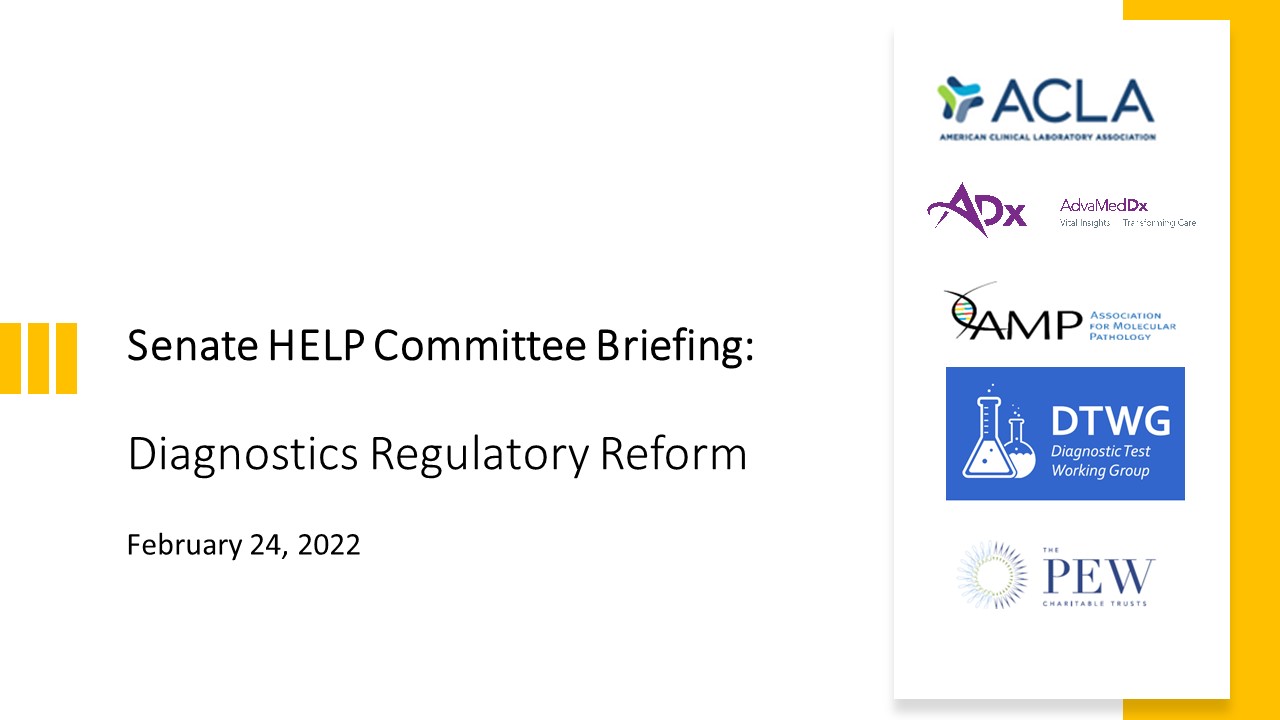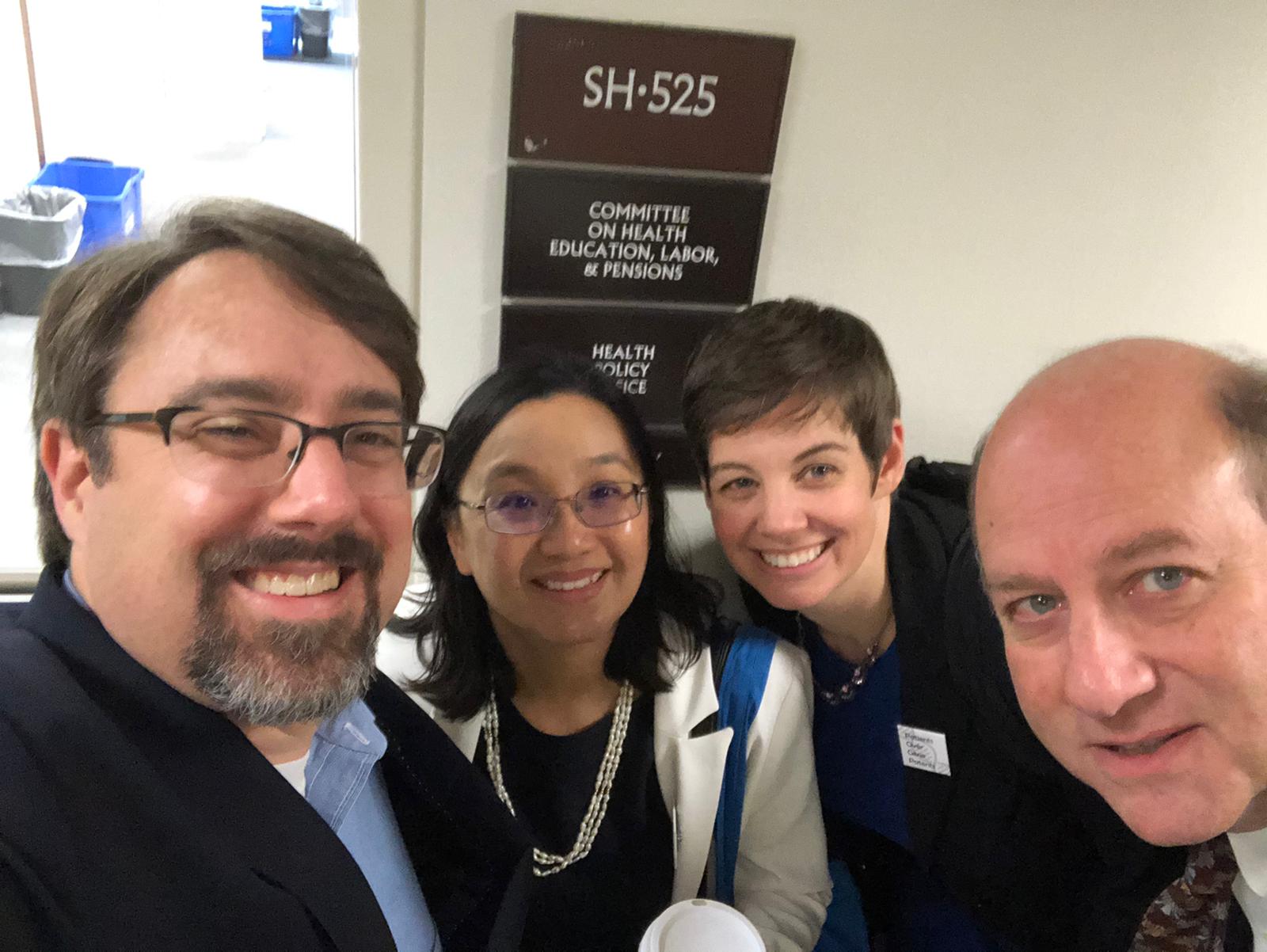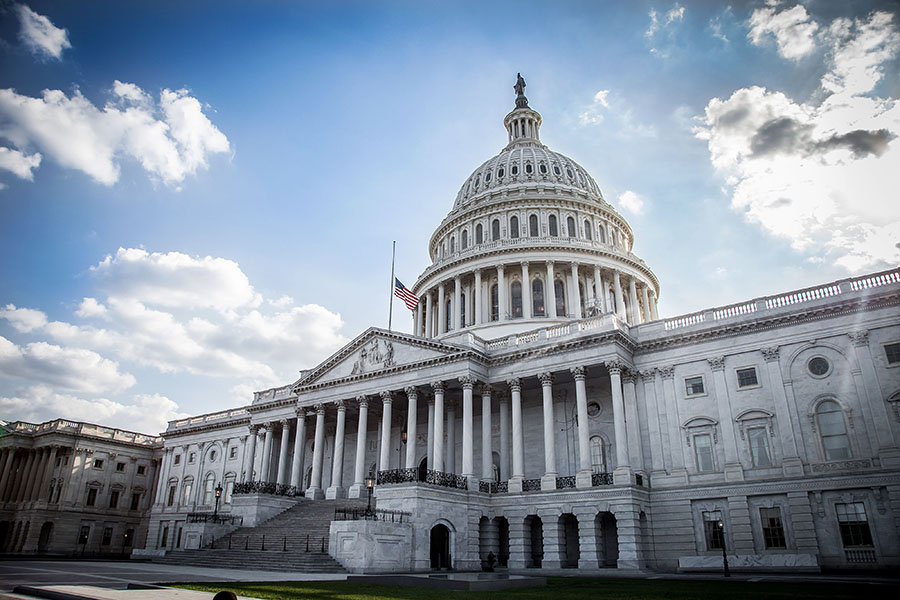
Winter 2022
Dear AMP Members,
One of the outcomes of the COVID-19 pandemic is the greatly increased public awareness regarding clinical diagnostic testing and the crucial position that clinical laboratories hold in the healthcare system. Unfortunately, this increased focus on clinical diagnostic testing has also resulted in a renewed push by legislators and regulators to bring oversight of laboratory developed testing procedures (LDPs) under FDA jurisdiction through the VALID Act. For years, AMP and our members have advocated that regulation of LDPs should rest within CLIA, not the FDA, as LDPs are professional medical services. You can read more about the VALID Act and AMP’s advocacy activities below.
As a physician who cares for my patients using molecular diagnostic tests, I have always been concerned with the proposals that sought to impose FDA regulation, in addition to the existing CLIA requirements. This concern has increased over the course of the COVID-19 pandemic, where the FDA’s Emergency Use Authorization (EUA) process inhibited my institution’s ability to quickly launch our SARS-CoV-2 tests for patients in our community. Additionally, I am keenly aware that similar legislation has been passed in Europe, the In Vitro Diagnostics Regulation (IVDR), and that concerns about the lack of review capacity and lack of clarity has resulted in the effective date of these policy changes being delayed several times.
This is an issue that will affect AMP members every day, whether they practice in an academic, community hospital, commercial reference laboratory, or diagnostic company, and it is imperative to advocate for the best policies for our patients and their access to life-saving tests. As you can read about below, AMP anticipates that conversations on this topic will accelerate throughout 2022 with an increase in advocacy over the coming months. To help bring the AMP membership, and our partners, up to speed on this issue we have prepared this special edition of the ChAMPion to focus on the new developments, AMP’s current advocacy activities, and ways for AMP members to weigh in on this incredibly important topic. We invite you to review and share this information with others, in addition to advocating on this topic at both an individual and institutional level.
Best,
Eric Konnick, MD
Chair, AMP Professional Relations Committee
The Washington State Delegation from AMP's 2019 Advocacy Day, from left to right: Drs. Eric Konnick, Cecilia Yeung, Christina Lockwood, and Daniel Sabath.
AMP Continues to Focus on Legislation for Laboratory Test Oversight
Throughout the years, AMP has provided detailed comments and suggestions on various legislative proposals regarding Laboratory Developed Testing Procedure (LDP) oversight as well as responding to the U.S. Food and Drug Administration (FDA) activities that attempt to regulate LDPs. Since its introduction in 2020, the Verifying Accurate Leading-edge IVCT (In Vitro Clinical Test) Development Act of 2021 (VALID Act) has become the center of legislative activity on this issue. The VALID Act is a large piece of legislation that would create a single regulatory pathway at the FDA for both LDPs and in vitro diagnostic tests (IVDs).
The VALID Act proposes dramatic modifications to current oversight mechanisms and thus has the potential to significantly impact many clinical testing laboratories, healthcare providers, and patients throughout the US. AMP is greatly concerned about this legislation because LDPs and IVDs are fundamentally different activities and a single regulatory system could never address their unique characteristics. Additionally, AMP maintains that FDA is not the appropriate agency to regulate LDPs as AMP members provide a medical service to their patients; they are not manufacturers. Further, there are numerous areas of overlap between the VALID Act and Clinical Laboratory Improvement Amendments (CLIA) requirements and it is unclear if the Center for Medicare & Medicaid Services (CMS) has been consulted on the drafting or the language. AMP is concerned that any confusion or regulatory duplication will place onerous administrative and financial requirements on our members and will adversely affect their laboratories. Finally, AMP has numerous concerns about how the text as written would be enforced as policy, such as the two-tier risk category system, the proposed precertification scheme, how modifications to tests would be handled, and grandfathering of tests currently on the market.
AMP submitted comments in 2019 and 2020 on the VALID Act, in addition to participating in multiple roundtable discussions and meetings with the bill sponsors’ offices to discuss our concerns. Towards the end of 2021, the sponsors’ offices, along with the Senate Committee on Health, Education, Labor and Pensions (HELP), which has jurisdiction over FDA policy, began actively reaching out to stakeholders in the clinical laboratory community with specific questions about the legislative language as they seek to advance the bill this year. AMP met with these offices in January, and again provided detailed feedback on AMP’s overarching concern that the VALID Act would regulate the practice of medicine. Further, the bill lacks clarity on how diagnostic tests would be classified by risk and subsequently, affects their eligibility for the proposed regulatory pathways outlined in the text. Without clarity on this issue, it is nearly impossible for individual clinical laboratories to determine the impact this legislation, if enacted, would have on their ability to continue to offer their current test menu offerings as well as whether they would be able to bring new tests into practice.
While the sponsors’ offices continue to consider relatively small changes to the bill in the effort to address stakeholder concerns, the U.S. Department of Health and Human Services (HHS) released a technical assessment (TA) of the VALID Act in January that called for substantial modifications to the provisions in the bill. It remains unclear as to how the sponsors will consider and incorporate these recommendations.
Why is there so much focus on the VALID Act this year?
One of the lead sponsors of the VALID Act who also happens to be the most senior Republican on the HELP Committee, Senator Richard Burr (R-NC), has announced that he will retire at the end of 2022. Additionally, for years, proponents have eyed the Medical Device User Fee Agreement (MDUFA) V legislative process as a potential legislative vehicle to move the VALID Act or similar legislation. The MDUFA legislative process determines the fees that medical device companies pay to FDA when they register their establishments and list their devices within the agency. The current process, MDUFA V, is considered “must-pass” in 2022 as this significant source of funding for FDA expires on September 30th. As both pieces of legislation focus on FDA, proponents are strategizing to incorporate the VALID Act into the MDUFA V legislation as a way to enact it into law. As the year progresses, AMP and other stakeholders will continue to increase policymakers’ awareness about the concerns with the VALID Act and advocate that such complex legislation should not be included into MDUFA.
How Is AMP Advocatating on Behalf of Its Members?
United Stakeholders Express Support of CLIA Modernization
On November 2, 2021, AMP signed on to a letter advocating that the Clinical Laboratory Improvement Advisory Committee (CLIAC) hold a public meeting to discuss the modernization of the CLIA regulations for laboratory developed testing procedures. The letter recommends that the Committee initiate a discussion on the broader use of LDPs and gathering information on how CLIA oversight can be updated to ensure that physicians, other healthcare professionals, and patients continue to have access to high quality, accurate LDPs. AMP was joined by over 15 other organizations signing onto this letter, including the American Medical Association and the American Hospital Association.
AMP Members (Virtually) Went to Capitol Hill to Push for CLIA Modernization
On December 8, 2021, AMP held a Virtual Advocacy Day where AMP built upon the progress made at our two previous in-person Advocacy Days in 2014 and 2019. Both new and seasoned AMP advocates spent the day communicating the important role they play in patient care. A total of 73 AMP attendees participated in over 120 meetings in support of CLIA modernization by asking members of Congress to sponsor the Verified Innovative Testing in American Laboratories (VITAL) Act of 2021. The VITAL Act, which has been strongly supported by AMP, clarifies that LDPs are regulated under CLIA and kickstarts the process to update the CLIA regulations. AMP advocates also used this time to share concerns with the VALID Act and FDA-centric regulation.
Diverse Stakeholders Urge Congress to Exclude the VALID Act from MDUFA V
The American Association for Clinical Chemistry (AACC), the American College of Medical Genetics and Genomics (ACMG), AMP, and the Association of Pathology Chairs (APC) championed a sign-on letter urging Congress to allow sufficient time for Congress to fully consider the VALID Act of 2021 instead of hastily adding it to must-pass legislation. The letter was sent to the leadership of the Senate HELP Committee and the House Committee on Energy & Commerce (E&C) on February 23rd, along with the support of fifteen other organizations representing a diverse and broad community of healthcare and public health professionals. The stakeholder letter highlights the potential harms to many clinical testing laboratories, healthcare providers, and patients throughout the US if the VALID Act were enacted, and the stakeholders request careful consideration of the bill under regular congressional procedures to avoid unintended consequences.
In addition to the organization sign-on letter, AACC, ACMG, AMP, and APC are circulating a similar sign-on letter for institutions to request that VALID not be included in MDUFA V or other must-pass legislation. If you are interested in advocating that your institution, university, hospital system, or department sign-on to this letter, please contact policy@amp.org.
AMP Urges Congress to Consider Impact of VALID Act on Patient Care
On February 24, Dr. Dara Aisner represented AMP at a Senate HELP Commitee Briefing on Diagnostic Regulatory Reform. AMP was invited to participate along with representatives from the Pew Charitable Trusts, AdvaMedDx, the Diagnostic Test Working Group (DTWG), and the American Clinical Laboratory Association (ACLA). Dr. Aisner provided an overview of molecular diagnostic laboratory medicine and its role in patient care, in addition to explaining how the VALID Act would hinder her ability to practice medicine and care for her patients.

What Can AMP Members Do To Help?
While many stakeholders are weighing in on this topic, your elected officials need to hear from you on how potential legislation will directly impact the laboratories and the patients that they represent. AMP is currently looking for institutions, universities, hospitals systems, or departments to sign on to a letter requesting that VALID not be included in MDUFA V or other must-pass legislation. If you are interested in advocating that your institution sign-on to this letter, please contact policy@amp.org.
Through AMP’s Advocacy Days, AMP members have developed personal relationships with their representatives’ offices and established themselves as a trusted resource on clinical diagnostic testing. Over the next few months, AMP will be reaching out to those who participated at key times to leverage these relationships and continue their discussions on both the VALID Act and the VITAL Act.
If you were not able to attend either of the recent Advocacy Days but are interested in advocating on this topic, please contact us at policy@amp.org! As legislation continues to be developed and considered by Congress, there are numerous opportunities to discuss this topic and your concerns with your representatives. We look forward to working with you!
Recent Comment Letters:
Stakeholder Sign-on Letter Requesting Congress Consider the VALID Act Separately from the Medical Device User Fee Agreement (MDUFA) V Legislative Process - February 23, 2022
AMP Comments on the Draft Prepare for and Respond to Existing Viruses, Emerging New Threats, and Pandemics (PREVENT Pandemics) Act - February 4, 2022
The AMP EAC and PRC work diligently to provide input to Congress and relevant agencies on all issues affecting regulation and reimbursement of molecular procedures. You can peruse all recent comment letters here.


























